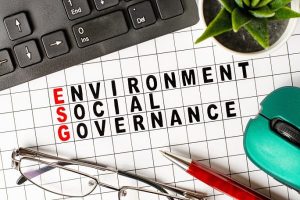Role of Chartered Accountants in BRSR
Role of Chartered Accountants in BRSR
“The focus on sustainable investing among equity market participants is expected to rise with more companies and countries implementing policies to meet ESG targets, particularly with respect to carbon emissions…….Stocks in Asia with high ESG scores on the MSCI are trading at a 40% premium to stocks with low ESG scores…….”
Livemint: 10th January, 2022 Source: https://www.livemint.com/market/mark-to-market/esg-theme-for-stocks-to-accelerate-in-2022-11641747303323.html
The Chartered Accountants can play a significant and integrated role in sustainability reporting in the following manner:
- Evaluating the systems, functions, operations and allied activities in the organisation to assess the ‘scope and boundary’ for BRSR requirements;
- Guiding in synchronisation of disclosure requirements of financial reporting standards (Ind AS) (such as Ind AS 1, Ind AS 19, Ind AS, 24, Ind AS 37, etc.) with the disclosure requirements enshrined under BRSR – Section A to Section C;
- Guiding in synchronisation of various regulatory and compliance requirements under the Companies Act, 2013 (such as CSR, Directors’ Report, etc.) with the disclosure requirements enshrined under BRSR – Section A to Section C;
- Guiding in synchronisation of various regulatory and governance requirements under the SEBI-LODR (such as Audit Committee, Vigil Mechanism, Related Party Transactions, etc.) with the disclosure requirements enshrined under BRSR – Section A to Section C;
- Assisting the auditors (external or internal, as the case may be) in having a synchronised exchange of information vis-à-vis the audit function and the disclosure requirements enshrined under BRSR – Section A to Section C;
- Assisting the investors and other users of financial statements by explaining and analysing the business impact on ‘triple bottom line’ (Profit, People, Planet) rather than merely on ‘bottom line’ (Profit);
- Providing assurance on BRSR carried out by the companies. Though this is not mandatory as of now under BRSR but still Section ‘B’ asks a question viz., “Has the entity carried out independent assessment/ evaluation of the working of its policies by an external agency? (Yes/No). If yes, provide name of the agency.” Such assurance can be provided as per the principles of ISAE 3000.
SEBI was one of the early adopters of sustainability reporting for listed entities amongst its global peers. The filing of the BRR containing ESG (Environment, Social and Governance) disclosures was first introduced for listed entities in 2012. Since then, a number of developments have taken place. With the adoption of the Paris Agreement on Climate Change and UN Sustainable Development Goals, adapting to and mitigating climate change impact and transitioning to sustainable economies have emerged as major issues globally. The COVID pandemic has also accelerated the relevance of ESG considerations to investors resulting in increased awareness of investors and a shift towards sustainable investing. The same is reflected in the spurt in new launches of ESG themed mutual funds and growth in assets of such schemes, including in India. As ESG investing becomes more mainstream, disclosure requirements need to keep pace with this change and the BRSR is a significant step towards this direction.
A – BRR vs. BRSR General information and general disclosures
B – BRR vs. BRSR Financial disclosures Vs. Management and process disclosures
C – BRR vs. BRSR Other details and Business Responsibility Information







